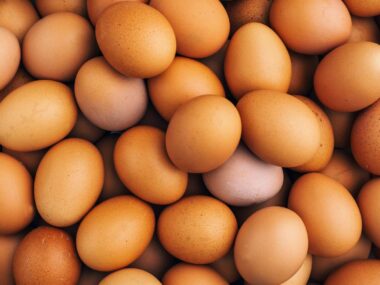Groundnut cake, also known as peanut cake or peanut meal, is a byproduct obtained from the oil extraction process of groundnuts (Arachis hypogaea). While groundnut oil is widely recognized for its culinary and industrial applications, groundnut cake often receives less attention despite its rich nutritional profile and potential health benefits.
This essay delves into the nutritional composition of groundnut cake, elucidating its role as a valuable source of essential nutrients and exploring its diverse health-promoting properties.
Nutritional Composition of Groundnut Cake

Groundnut cake is renowned for its impressive nutritional composition, boasting a diverse array of macro- and micronutrients essential for human health. Rich in protein, groundnut cake serves as an excellent plant-based protein source, containing approximately 40% to 50% protein by weight. Moreover, groundnut cake is abundant in essential amino acids, particularly lysine, which is often limited in cereals and other plant proteins. This makes groundnut cake a valuable dietary component for individuals following vegetarian or vegan diets.
In addition to protein, groundnut cake is a significant source of healthy fats, primarily comprising monounsaturated and polyunsaturated fatty acids. These include oleic acid, linoleic acid, and alpha-linolenic acid, which have been linked to various health benefits, including cardiovascular health and inflammation modulation. Furthermore, groundnut cake is a rich source of dietary fibre, vitamins (such as vitamin E and B vitamins), minerals (including magnesium, phosphorus, and potassium), and bioactive compounds, such as antioxidants and phytochemicals.
Health Benefits of Groundnut Cake
- Cardiovascular Health: The monounsaturated and polyunsaturated fatty acids found in groundnut cake contribute to heart health by lowering LDL cholesterol levels, reducing inflammation, and improving lipid profiles. Regular consumption of groundnut cake may help lower the risk of cardiovascular diseases, including coronary artery disease and stroke.
- Blood Sugar Regulation: Groundnut cake’s high protein and fibre content can aid in stabilizing blood sugar levels and preventing rapid spikes in blood glucose following meals. This makes it a suitable dietary option for individuals with diabetes or those aiming to manage their blood sugar levels effectively.
- Muscle Building and Repair: The high-quality protein content of groundnut cake, coupled with its rich amino acid profile, makes it an ideal dietary supplement for supporting muscle building, repair, and recovery. It provides essential amino acids necessary for muscle synthesis, making it particularly beneficial for athletes, bodybuilders, and individuals engaging in regular exercise.
- Weight Management: Groundnut cake’s high protein and fibre content impart a sense of satiety and fullness, which can help curb appetite and prevent overeating. Incorporating groundnut cake into meals or snacks may aid in weight management efforts by promoting feelings of satisfaction and reducing calorie intake.
- Bone Health: Groundnut cake contains significant amounts of minerals, such as magnesium, phosphorus, and potassium, which play essential roles in bone health and density. Regular consumption of groundnut cake may contribute to maintaining strong and healthy bones, reducing the risk of osteoporosis and fractures.
- Antioxidant Protection: Groundnut cake is rich in antioxidants, including vitamin E and phytochemicals such as resveratrol and flavonoids. These compounds help neutralize harmful free radicals, reduce oxidative stress, and protect cells from damage, thereby lowering the risk of chronic diseases and promoting overall health.
- Cognitive Function: The omega-3 fatty acids present in groundnut cake, particularly alpha-linolenic acid, have been associated with improved cognitive function, memory, and brain health. Including groundnut cake in the diet may support cognitive function and reduce the risk of age-related cognitive decline.
Incorporating Groundnut Cake into the Diet
Despite its nutritional benefits, groundnut cake is often underutilized in culinary applications. However, there are numerous creative ways to incorporate groundnut cake into a balanced diet to reap its nutritional rewards.
Groundnut cake can be used as a protein-rich ingredient in baked goods, such as bread, muffins, and cookies, adding moisture and flavour while enhancing the nutritional profile. It can also be incorporated into smoothies, energy bars, granola, and savoury dishes like soups, stews, and curries to boost protein content and enhance texture.
Conclusion
In conclusion, groundnut cake stands as a nutritional powerhouse, brimming with essential nutrients and health-promoting compounds. Its rich protein content, healthy fats, dietary fibre, vitamins, minerals, and antioxidants confer a multitude of health benefits, ranging from cardiovascular protection and blood sugar regulation to muscle building and cognitive support.
By incorporating groundnut cake into a balanced diet, individuals can harness its nutritional potential and enhance their overall health and well-being. As awareness of groundnut cake’s nutritional benefits continues to grow, it has the potential to emerge as a staple ingredient in diverse culinary applications, promoting both human health and sustainability in food production.










